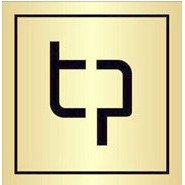Best Education Law Lawyers in Phnom Penh
Share your needs with us, get contacted by law firms.
Free. Takes 2 min.
List of the best lawyers in Phnom Penh, Cambodia
About Education Law in Phnom Penh, Cambodia
Education Law in Phnom Penh, Cambodia, encompasses the legal guidelines and policies governing the education system in the city. This body of law controls the responsibilities and rights of students, educators, and educational institutions. This can include issues related to school governance, student rights, teacher contracts, curriculum standards, educational accessibility, and the enforcement of educational laws and policies.
Why You May Need a Lawyer
Individuals in Phnom Penh may require legal assistance in Education Law due to a variety of situations. These can include disputes over school admission policies, disciplinary actions against students or educators, special education needs, student rights violations, and instances of discrimination within educational settings. Legal help may also be necessary for addressing school policies and regulations, ensuring compliance with national education standards, and understanding the implications of governmental educational reforms.
Local Laws Overview
The local laws concerning education in Phnom Penh are significantly influenced by national laws, namely the Education Law 2007, which outlines the framework for the entire education system in Cambodia. Key aspects include mandatory schooling for children, standards for school facilities and teacher qualifications, regulations surrounding private education institutions, and policies aimed at improving accessibility and equality in education. Additional laws may pertain to vocational training and measures to prevent administrative corruption in educational bodies.
Frequently Asked Questions
What is the compulsory education age in Cambodia?
In Cambodia, compulsory education is from the age of six to fifteen years, covering grades 1 to 9.
What are my child's rights in school?
Students have the right to receive a quality education without discrimination. Schools must also offer a safe and healthy learning environment while respecting students' freedoms and identities.
Can a student be expelled from school without a hearing?
No, students cannot be expelled without a fair hearing process. The school must provide a valid reason and the opportunity for the student to defend themselves.
What should I do if I suspect discrimination in school?
If you suspect discrimination, you should first report it to the school authorities. If the issue isn't resolved, legal counsel may be necessary to ensure proper actions are taken.
Are private schools regulated differently from public ones?
Yes, while both follow the national education guidelines, private schools have some autonomy but must meet certain standards set by the Ministry of Education, Youth, and Sport.
What laws protect the rights of students with disabilities?
The rights of students with disabilities are protected under the Education Law 2007, which mandates support for inclusive education and provides for reasonable accommodations in schools.
How can a parent be involved in the school’s decision-making process?
Parents can participate in school committees or boards and attend parent-teacher meetings to stay informed and involved in their children's education.
What recourse do I have if a school rejects my child’s admission?
You can appeal the decision directly to the school first. If necessary, you may escalate the matter to the local education authority or seek legal advice.
Are international schools subject to the same laws?
International schools are subject to both national regulations and agreements specific to international education standards, though they retain some curricular flexibility.
Where can I report unethical behavior by a school official?
Unethical behavior should be reported to the school administration first. If the issue persists, contact the local education department or seek legal assistance.
Additional Resources
Several resources can provide assistance for those seeking help with Education Law in Phnom Penh. The Ministry of Education, Youth, and Sport is the central government body responsible for education oversight. Other resources include local educational NGOs, the Cambodian Bar Association, and community legal centers that offer guidance and support in navigating education-related legal issues.
Next Steps
If you need legal assistance, consider consulting with a lawyer specializing in Education Law in Phnom Penh. You can begin by reaching out to law firms known for their education-related cases or contacting the Cambodian Bar Association for recommendations. It is advisable to prepare any relevant documents and specific details of your case for a more productive consultation.
Lawzana helps you find the best lawyers and law firms in Phnom Penh through a curated and pre-screened list of qualified legal professionals. Our platform offers rankings and detailed profiles of attorneys and law firms, allowing you to compare based on practice areas, including Education Law, experience, and client feedback.
Each profile includes a description of the firm's areas of practice, client reviews, team members and partners, year of establishment, spoken languages, office locations, contact information, social media presence, and any published articles or resources. Most firms on our platform speak English and are experienced in both local and international legal matters.
Get a quote from top-rated law firms in Phnom Penh, Cambodia — quickly, securely, and without unnecessary hassle.
Disclaimer:
The information provided on this page is for general informational purposes only and does not constitute legal advice. While we strive to ensure the accuracy and relevance of the content, legal information may change over time, and interpretations of the law can vary. You should always consult with a qualified legal professional for advice specific to your situation.
We disclaim all liability for actions taken or not taken based on the content of this page. If you believe any information is incorrect or outdated, please contact us, and we will review and update it where appropriate.









